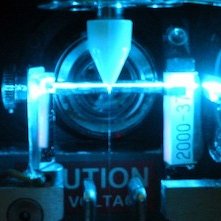The Institute of Molecular Medicine and Experimental Immunology (IMMEI) was founded in 2002. It is located in the Biomedical center II on the Medical faculty on the Venusbergcampus of the Friedrich-Wilhelms-Universität Bonn. The scientific mission of IMMEI is to understand the molecular and cellular mechanisms controlling immune responses in tissues, resulting either in inflammation, immunity or immune tolerance. Comprehensive knowledge of the physiological regulation of immune responses is essential to understand the defense against infections and tumors and to avoid autoimmunity. Ultimately, we aim to develop new therapeutic strategies to modulate local immune responses to benefit patients.

Currently, six independent research groups are working in the institute, focusing on different immune-mediated diseases in various organs, especially the kidney, lung, liver, blood vessels and tissue-stroma, and contributed numerous landmark findings. In addition, we host several guest groups from Clinical departments, such as Oncology, Anesthesiology, Radiation Therapy and Nephrology. We maintain the Center for Experimental Therapy, the 2-Photon in vivo imaging unit, the Flow Cytometry Core Facility (FCCF) and an Immune-Profiling Unit for Clinical studies of the Medical Faculty and the University Clinic Bonn.
We are among the main applicants of the immunologic DFG Excellence cluster "ImmunoSensation - The Immune System as Sensory Organ" and its successor "ImmunoSensation2". We participate in several collaborative research projects funded by the DFG, such as the SFB1154 "Metaflammation", the SFB-TR237 "Nucleic Acid Immunity", the SFB-TR259 "Aortic valve disease", the SFB-TR57 "Liver and Kidney fibrosis" and the SFB1192 "immune-mediated kidney diseases".
Research group leaders at the IMMEI also collaborate to develop novel cooperative teaching activities for Medical and Biomedicine students. We maintain the "Bonn & Melbourne Research and Graduate School (IRTG2168)", where students can perform a joint PhD at the University of Bonn and at the University of Melbourne, the leading Australian university. In addition, we manage the "Bonn & Melbourne Academy for Excellence in Immunosciences (BM-AXIS)", an international exchange program for medical doctors, postdoctoral scientists and professors between these two universities.
The Flow Cytometry Core Facility provides state of the art teaching for postgraduates. We also contribute to teaching and organizing the Master and Bachelor programs of the Medical and Science faculty.
The IMMEI contributes to the research foci "Immunosciences and Infection", "Oncology", "Neurosciences" and "Cardiovascular Sciences" of the Medical Faculty of Bonn and to the Transdisciplinary Research Area (TRA) "Life and Health" of the University of Bonn. We actively collaborate with clinical departments and with scientists from the natural science faculty, thus forming a lively scientific platform fostering not only basic research but also translational medicine.